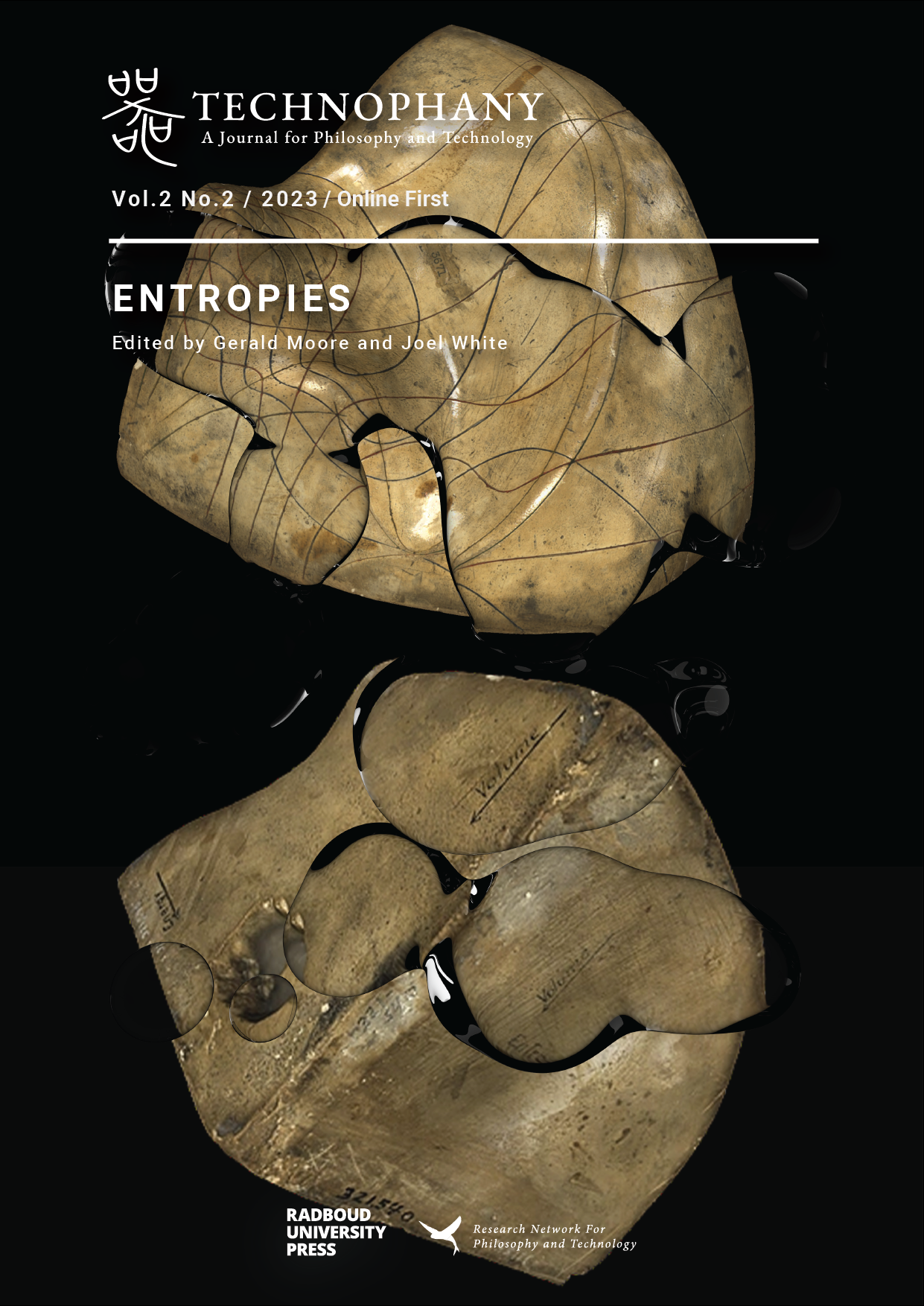Human Aging and Entropy
DOI:
https://doi.org/10.54195/technophany.14878Keywords:
Entropy, Age Studies, Old Age, Simone de BeauvoirAbstract
In this paper I argue that the contemporary pathologizing of old age is directly tied to the notion of uselessness, understood entropically as that which cannot contribute energy for useful work. The elderly are configured as socially useless and thus threaten the health of the body politic. As a result, they are marginalized, ignored, and treated as waste to be jettisoned from the system. Because understanding bodies as machines able or unable to perform work accords with the second law of thermodynamics, the first half of this paper discusses entropy as both scientific law and philosophical concept. The second section explores the lived experience of aging and the pathologized position of social uselessness through Simone de Beauvoir’s analysis of old age. As she herself ages, the place of senescence comes to play a more pronounced role in her philosophical inquiry. Writing about the lived experience of aging adds a vital dimension to the scientific and philosophical perspectives, insofar as it foregrounds the various ways that entropy is felt: slowing, dissipating, and ultimately dying. While these should be viewed as part of the normal life cycle, they become markers of abjection which are judged harshly against the standard of social utility.
Downloads








